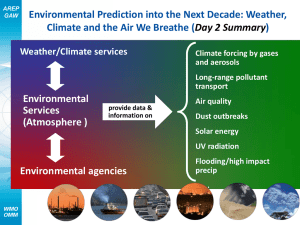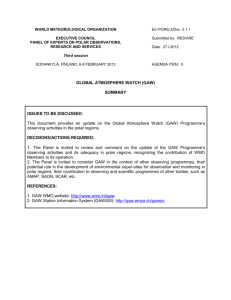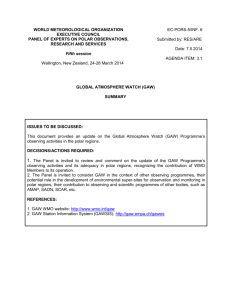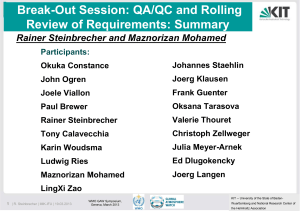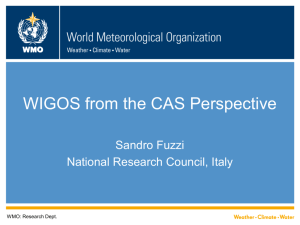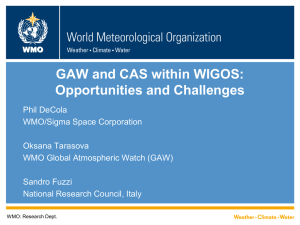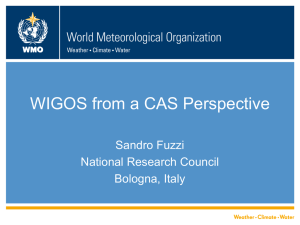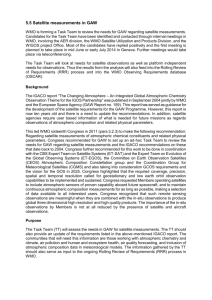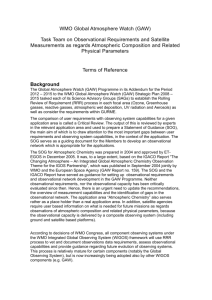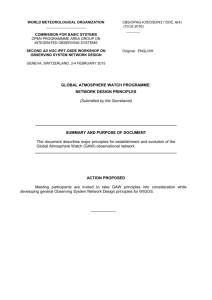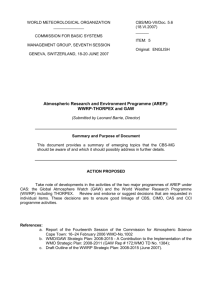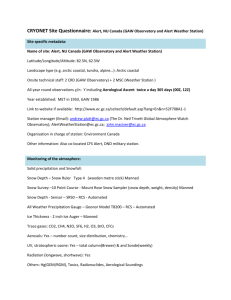GAW contributing networks, data submission and use
advertisement
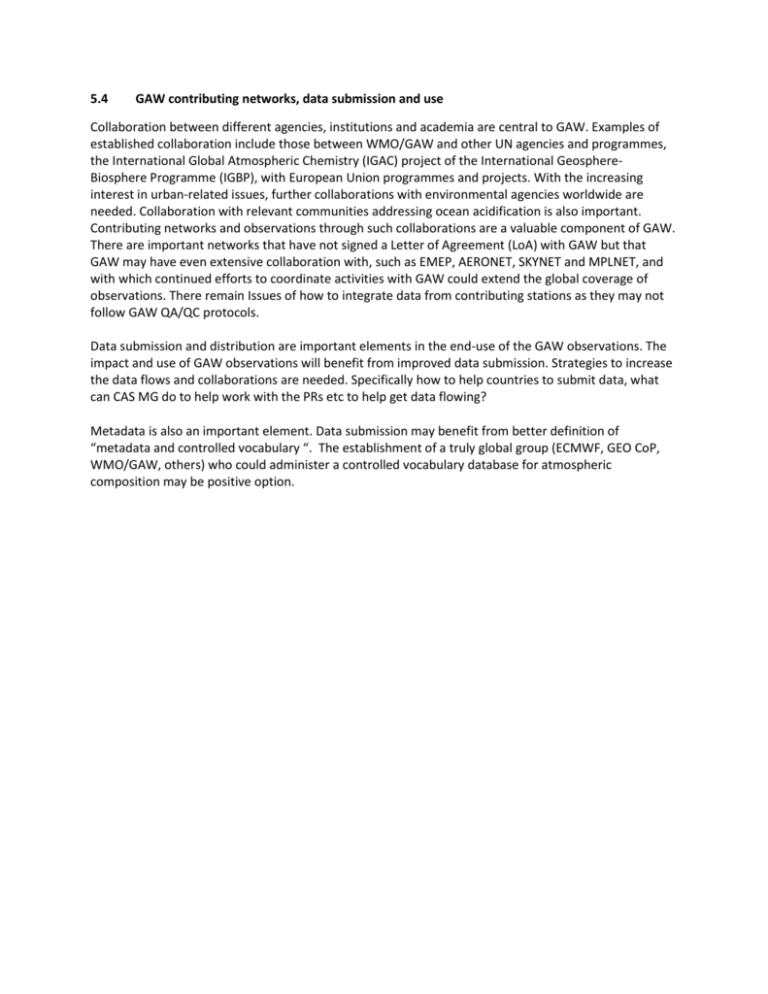
5.4 GAW contributing networks, data submission and use Collaboration between different agencies, institutions and academia are central to GAW. Examples of established collaboration include those between WMO/GAW and other UN agencies and programmes, the International Global Atmospheric Chemistry (IGAC) project of the International GeosphereBiosphere Programme (IGBP), with European Union programmes and projects. With the increasing interest in urban-related issues, further collaborations with environmental agencies worldwide are needed. Collaboration with relevant communities addressing ocean acidification is also important. Contributing networks and observations through such collaborations are a valuable component of GAW. There are important networks that have not signed a Letter of Agreement (LoA) with GAW but that GAW may have even extensive collaboration with, such as EMEP, AERONET, SKYNET and MPLNET, and with which continued efforts to coordinate activities with GAW could extend the global coverage of observations. There remain Issues of how to integrate data from contributing stations as they may not follow GAW QA/QC protocols. Data submission and distribution are important elements in the end-use of the GAW observations. The impact and use of GAW observations will benefit from improved data submission. Strategies to increase the data flows and collaborations are needed. Specifically how to help countries to submit data, what can CAS MG do to help work with the PRs etc to help get data flowing? Metadata is also an important element. Data submission may benefit from better definition of “metadata and controlled vocabulary “. The establishment of a truly global group (ECMWF, GEO CoP, WMO/GAW, others) who could administer a controlled vocabulary database for atmospheric composition may be positive option.
